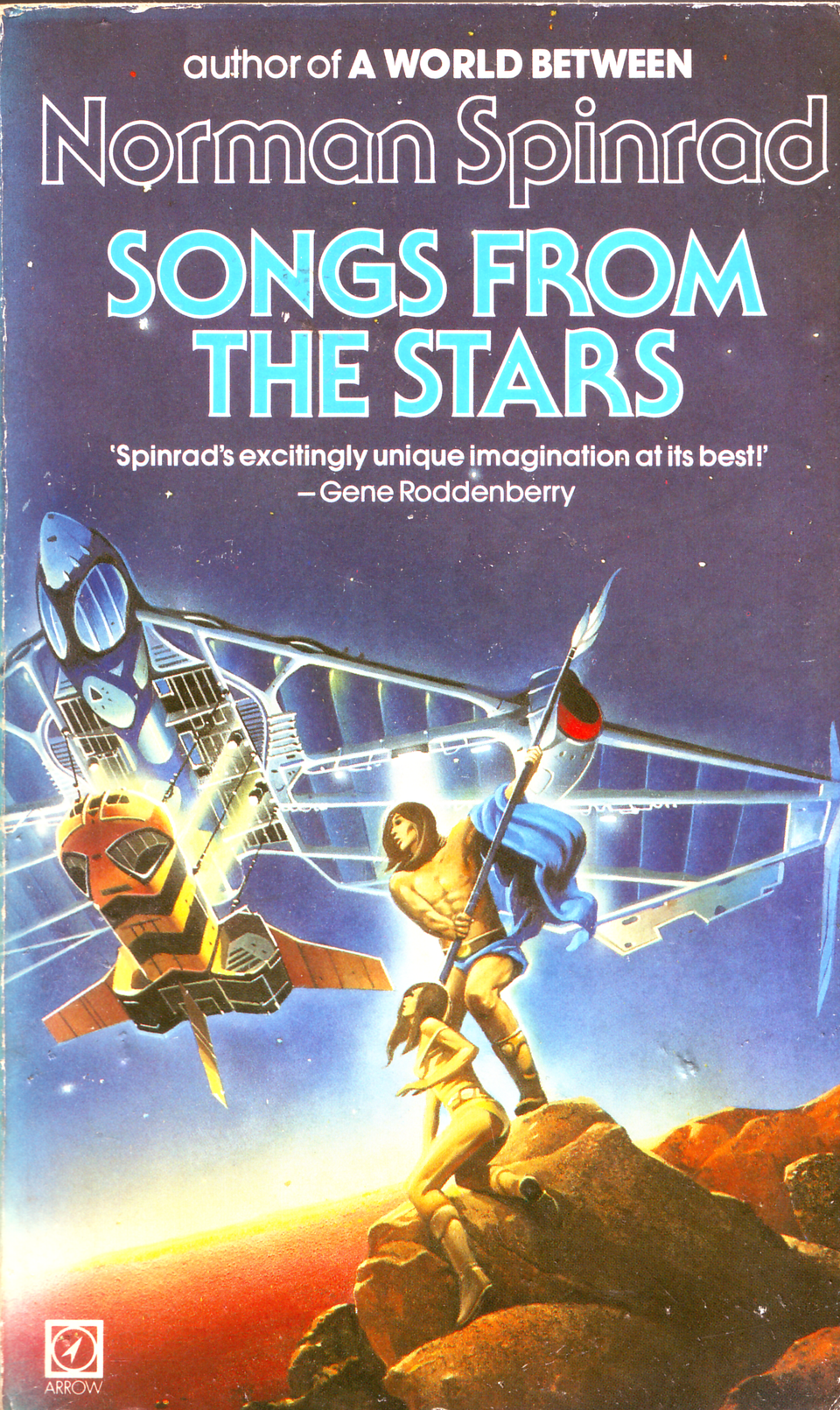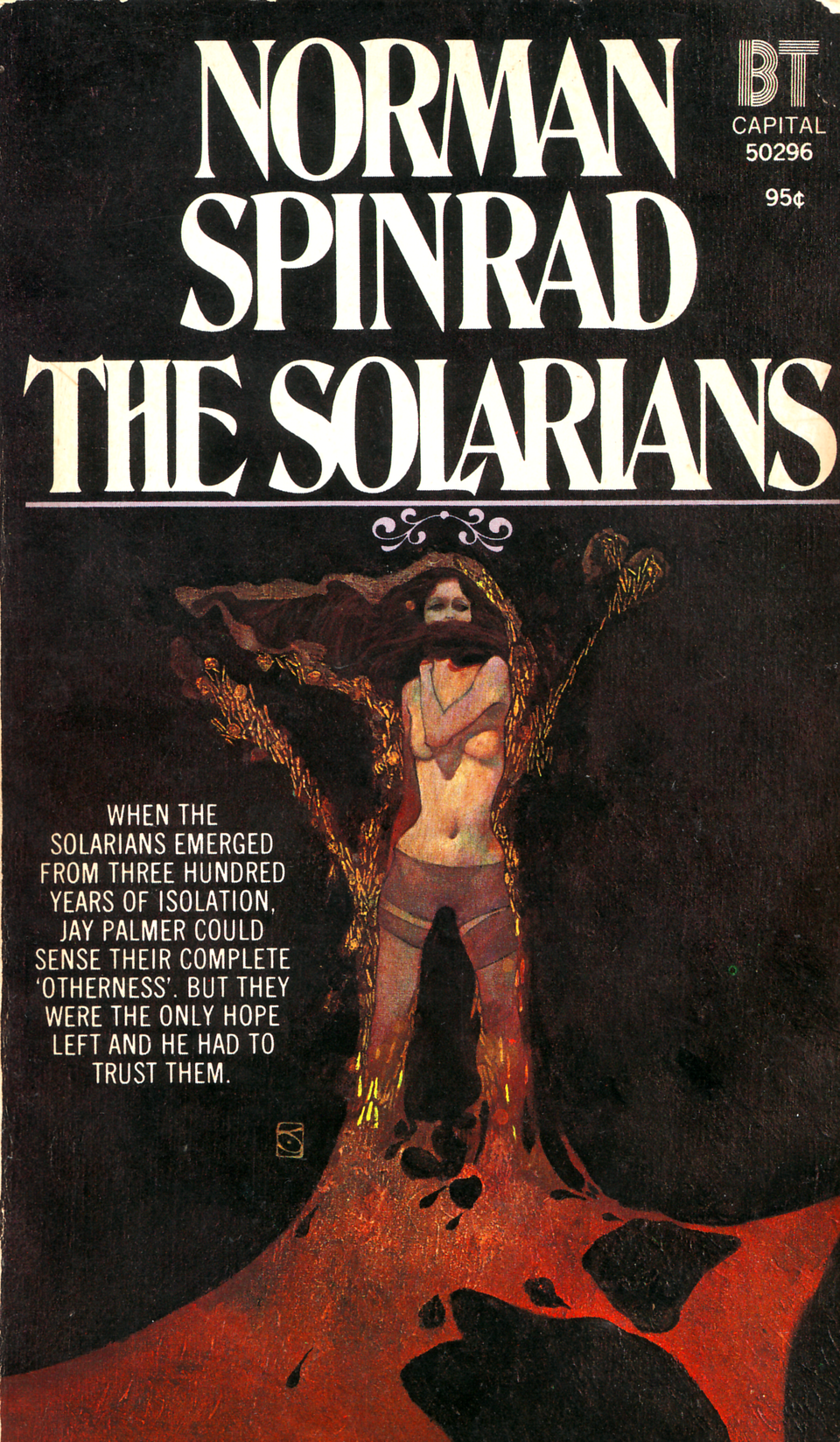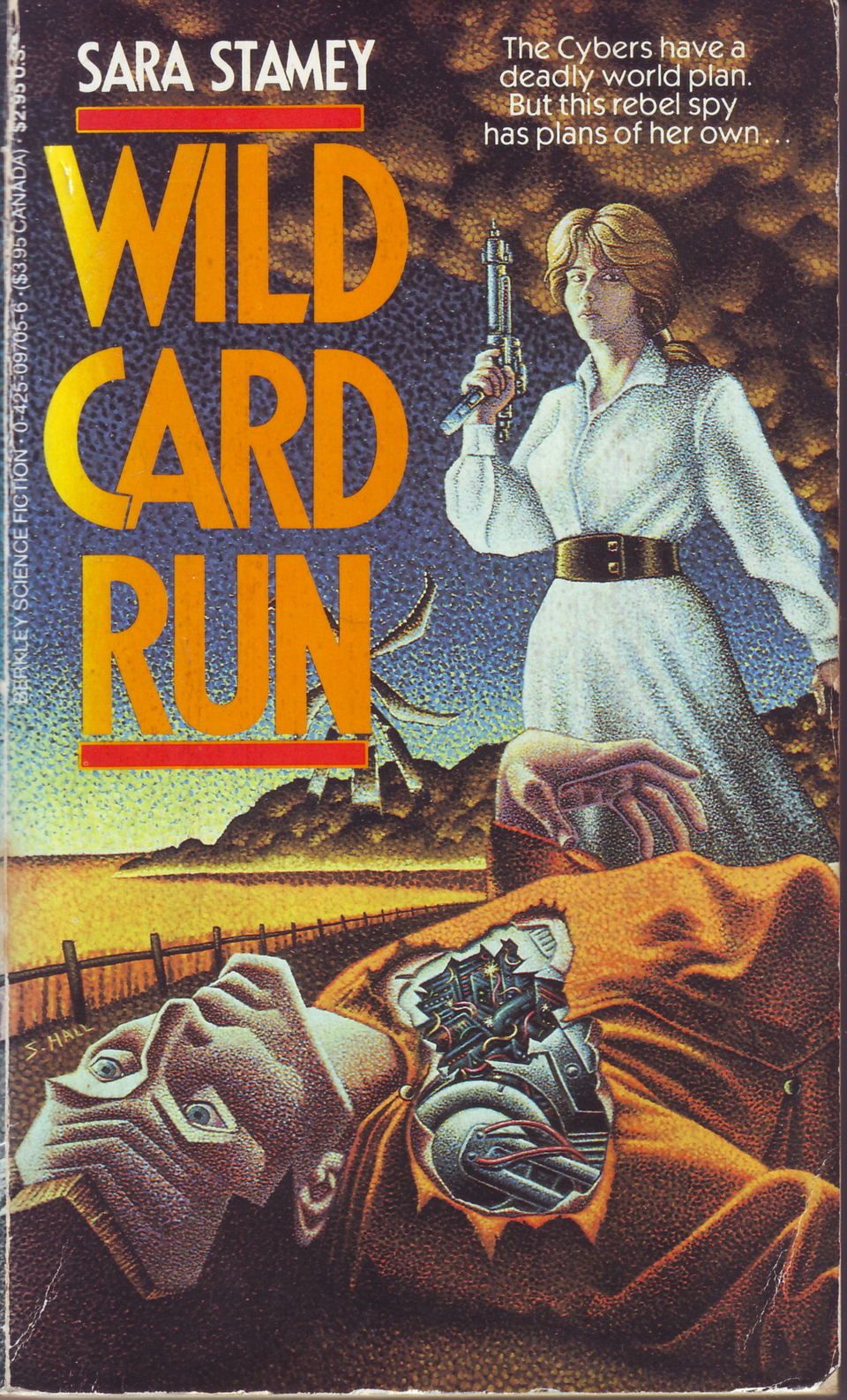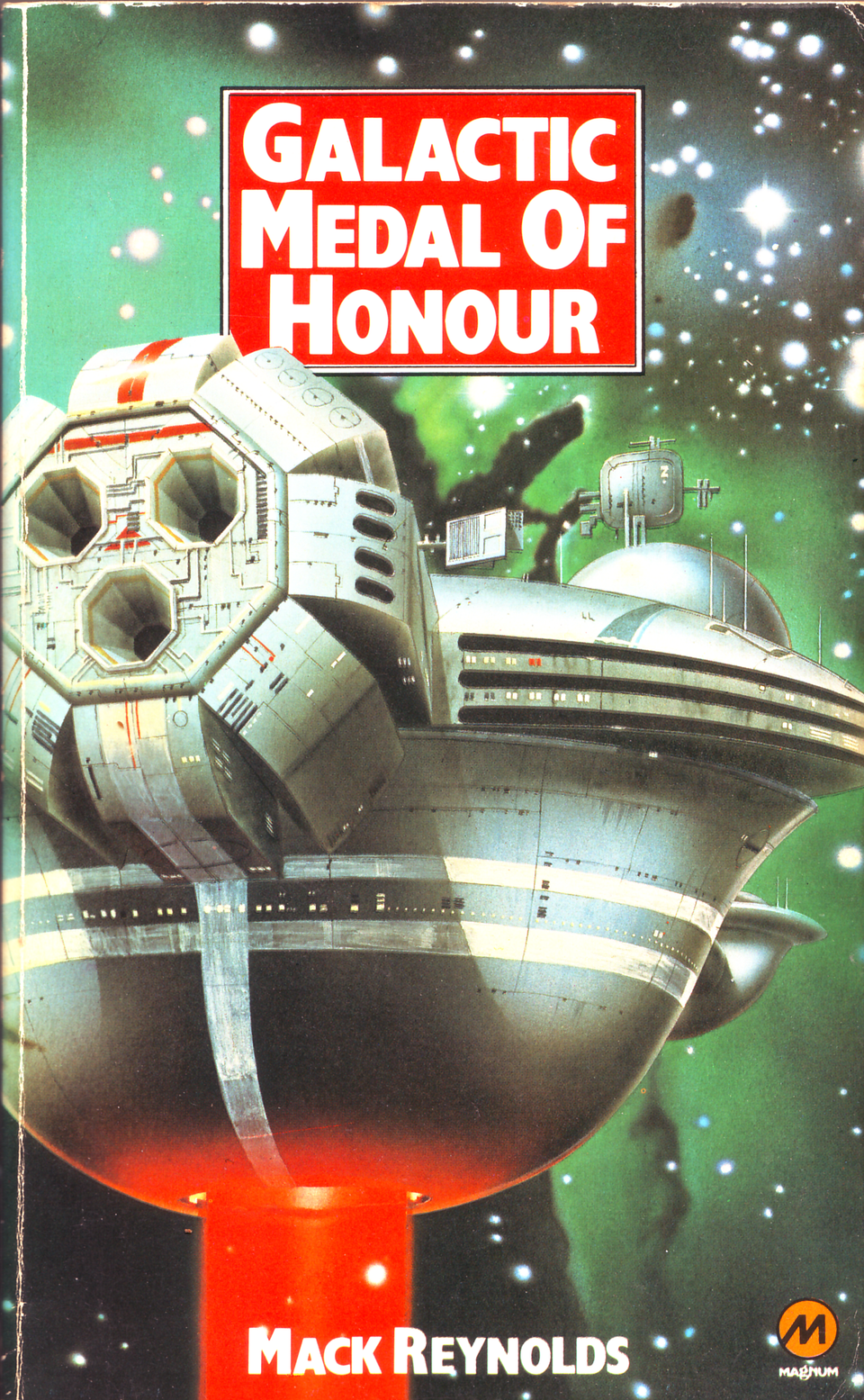Tangent Futures - Short Reviews #2
Nothing like this happened in either book
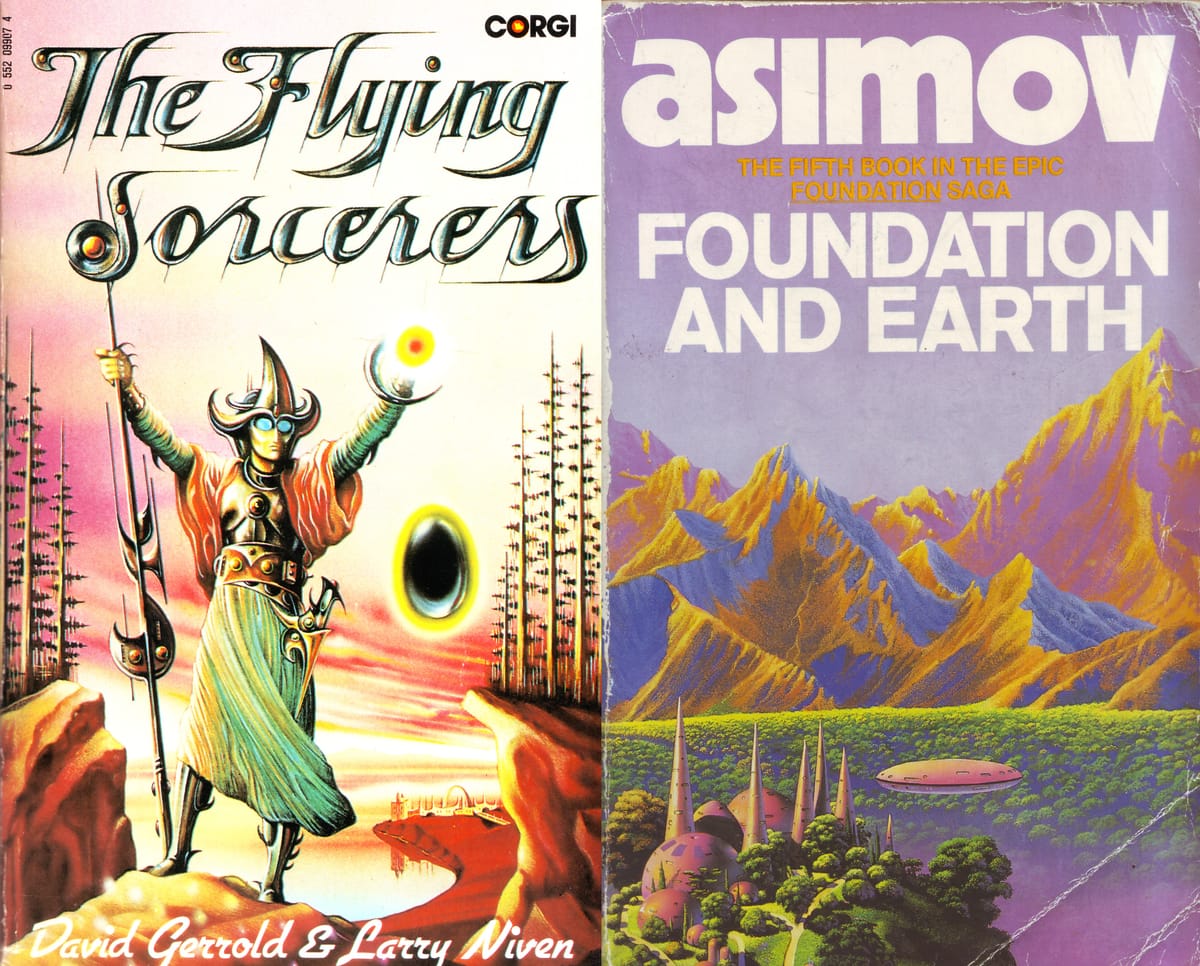
Larry Niven & David Gerrold (1975) The Flying Sorcerers
The mage, Shoogar, and his... I suppose he's his friend, Lant, live in a world where magic, the spiritual and everyday life are all coalesced together. Everything has a spirit that must be attended, balances to be kept, ancestors to be mindful of. Shoogar is smug and insufferable, to a point where you immediately realise he's going to act as some sort of comic pivot. His hubris, as expected, is quickly challenged by the appearance of a strange visitor in an egg shaped craft. He is human, with no fur on his body. He has powers which, to the unknowing Shoogar, seem magical.
You groan inwardly. This is going to be smug 70s materialism, isn't it.
Off the story goes on a series of contrivances, meant to be funny, about the rankled Shoogar summoning spirits of filth and pestilance to drive off the unwanted visitor, and they don't really work, but they get everything very dirty.
Its materialism isn't quite Dawkins level of incredulity, but it verges on it. In there is meant to be some assumption that watching the wooey locals struggle with the powers of science has some sort of satisfaction or emotional payoff to it. There isn't and it gets old very quickly.
There's a couple of good jokes about it among the dross, one about blueprints ("It's a drawing of what we're making," "but by drawing it, you've already made it") which have a little subtlety about them, a suggestion that they've thought about how these worldviews might actually function. Underneath it though, there's a map of an emotional area I just don't feel. Shoogar is meant to deflect empathy by his abrasive persona, but you feel bad for these inhabitants whose village and spiritual lives are completely upended by this visitor.
The visitor gets them to build him a dirigible in order to fly to someplace he can radio his space ship. To do this, he basically introduces the idea of factory production to them. Lucky them.
Then there's the real objectionable part, the wife beating jokes. Or rather, cowardly, legally distinct wife beating jokes, because they're aliens and technically Lant never beats his wives in the book. The women of this species are meant to be passive and stupid, but Lant is always like "despite her mistake I was merciful to her today, and did not beat her." In very bad taste no matter when it was written.
It ends up in a mediocre travelling narrative where there's not enough detail about where they go. I felt pretty conflicted about Larry Niven. Ringworld is excellent, but everything else I've read of his is too flimsy to support really engaging stories. This one resolved me to not wanting to read any more. This book has enough problems without being utterly tasteless.
Isaac Asimov (1986) Foundation and Earth
"Show don't tell" is a perfectly good critique for TV and movie, but by definition doesn't really apply to books, where everything is told.
You read Foundation and Earth, and realise it applies to books as well.
Three characters, Trevize, Peloran, and the enigmatic Bliss are on Gaia. Gaia is a beautiful place, a place where all of the inhabitants, animals, plant and even mineral life are connected. What one Gaian feels, the others feel as well, more indistinctly. They live in a way we cannot easily imagine, their pleasures amplified, they never feel alone or isolated, they are in love with the planet, and it is in love with them.
What an excellent setting for a science fiction story. Shame, because they leave it almost immediately.
What they say they want to do is spread this way of being, termed Galaxia, to the rest of the stars. What they end up doing is totally forgetting about the idea until right the end.
They leave Gaia, and then they talk. The entire story unfolds within conversations. Entire chapters are just them talking. What's worse, is that none of them have a personality good or distinct enough to warrant the word count.
I've read two other Foundation books, and they tend towards the same error. The originals, written in the 1940s and 50s, avoid being dull by some fairly interesting ideas and a more lived in setting. By the preface's admission, Asimov wrote the originals, got bored of them, and only through publisher pressure and a huge advance in the 1980s was convinced to write more.
This is the first of the continuation, and wow, is it tedious.
The original books are about cycles of history. It posits a science of cyclical prediction, called psychohistory, and the foundation, a breakaway civilisation at the edge of a galactic empire, is designed as a power in waiting to avert "barbarism" when the empire inevitably falls.
Foundation and Earth dumps all of this setting. It gets three people, sets them off on a quest to find Earth, and they talk. In between the conversations where the story basically lives, they go to planets. They keep talking while there, but a single bland, uninteresting thing happens to them on each one.
Bliss is the most interesting character, but only because the other two are so boring. She is in constant connection with Gaia, and can with its assistance influence the emotions of others. Often the book forgets this, and she doesn't do it even when it'd be helpful. She describes her abilities at length, though.
Peloran is a historian, and his personality trait is to say things like "old chap" to Trevize. Trevize himself, presumably meant to be the hard bitten, realist adventurer, comes across as whiny and moody. They're both uninteresting, and both have very similar personalities.
Asimov books are supposed to be some of the best of the genre. Does his work have a Vegas era? This book has all the telltales of a Vegas era work, it's waffly and long winded, covering for a scaffolding of a plot where they goto a place, something happens, they move on. It comes across half assed and like it doesn't understand its own, earlier work.
Sci-fi is fond of travelling narratives, but it's not very good at them. I've only read a few that do it well. If Star Trek has a trope of "planet of one type of person", sci-fi books have one of "planet where one thing happens."
I haven't read, and am unlikely to read, enough Asimov to have a concrete opinion on his output. These books seem to exist in a glow mostly eminating from how prolific he was, rather than how good they were. The few I've read are basically structured, fairly tepid, not touching heavily on emotional arcs or character development.
Foundation is good enough, but by this point all the content is tapped out. It has the aura of a comeback album, decades later, that can't capture the spirit or setting of an original.
Nice cover, though.
